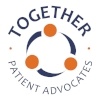
In this first of a two-part series on dementia, I’ll give you an overview, including what dementia is, other diseases with similar symptoms, and what to expect from your evaluation. Part two will focus on what to do after a diagnosis.
What is Dementia?
As people age, they often fear that any lapse in memory or misplacement of things like car keys are signs of dementia. It’s helpful to understand the difference between normal cognitive aging and dementia. The Alzheimer’s Association describes 10 Early Signs and Symptoms of Alzheimer’s , which includes a chart describing the difference between signs of dementia and natural aging. Discuss with your doctor if you’re experiencing one or more of these ten signs.
To help you prepare for that appointment, you can download a worksheet that describes the ten signs and provides space for you to write down specific examples of those you are experiencing.
Dementia is not a part of normal aging. It is a decline in cognition that affects one or more areas and interferes with normal function. According to the Alzheimer’s Association, “Dementia is not a single disease; it’s an overall term — like heart disease — that covers a wide range of specific medical conditions.” In other words, dementia is the overall umbrella term with specific diagnoses under it. There are a number of diseases that can cause dementia.
Some causes of dementia include the following:
- Alzheimer’s disease: The most common cause of dementia. Abnormal proteins build up in the brain and damage healthy brain cells. The most common symptoms are difficulty remembering new information, decreased ability to work with numbers, and difficulty completing familiar tasks.
- Vascular dementia: In these cases the vessels that supply blood to the brain are damaged. According to the Mayo Clinic, “The most common symptoms…include difficulties with problem-solving, slowed thinking, focus and organization.”
- Lewy body dementia: Patients with Lewy bodies, which are clumps of protein in the brain, called Lewy bodies, commonly act out their dreams, have visual hallucinations, and changes in their alertness and attention.
- Frontotemporal dementia: This type of dementia affects the brain’s frontal lobes,. Symptoms involve changes in behavior, personality, and language.
- Mixed dementia: This is not a single disease, but rather a combination of two or more types of dementia. Research is being conducted to better understand the symptoms and treatments for mixed dementia.
Other Causes of Dementia-Like Symptoms
In addition to normal aging, other diseases can produce symptoms like those of dementia. Before making a diagnosis of dementia, your doctor will rule out other treatable problems like the following:
- Depression or anxiety
- Infections -- even a simple urinary tract infection can cause confusion in older adults.
- Hypothyroidism, or poorly controlled diabetes causing too low or too high of blood glucose levels.
- Vitamin deficiencies like low b12.
- Many medications, including over-the-counter medications, supplements, herbal remedies and even medicinal marijuana can cause symptoms of dementia. Bring everything you take with you to your doctor appointment.
- Chronic alcoholism
What does Evaluation Involve?
Evaluation will include an interview with yourself and someone who knows you well, a physical exam which will include a neurological exam and possibly cognitive tests, blood work and sometimes a CT scan or MRI of the brain. In some cases your doctor will send you to a psychologist for further cognitive evaluation.
In my next post, I'll give you information and resources for what you and your loved ones can do and should know after receiving a dementia diagnosis.



.gif?width=200&name=NAHAC-Member-Badge200x112+(1).gif)


